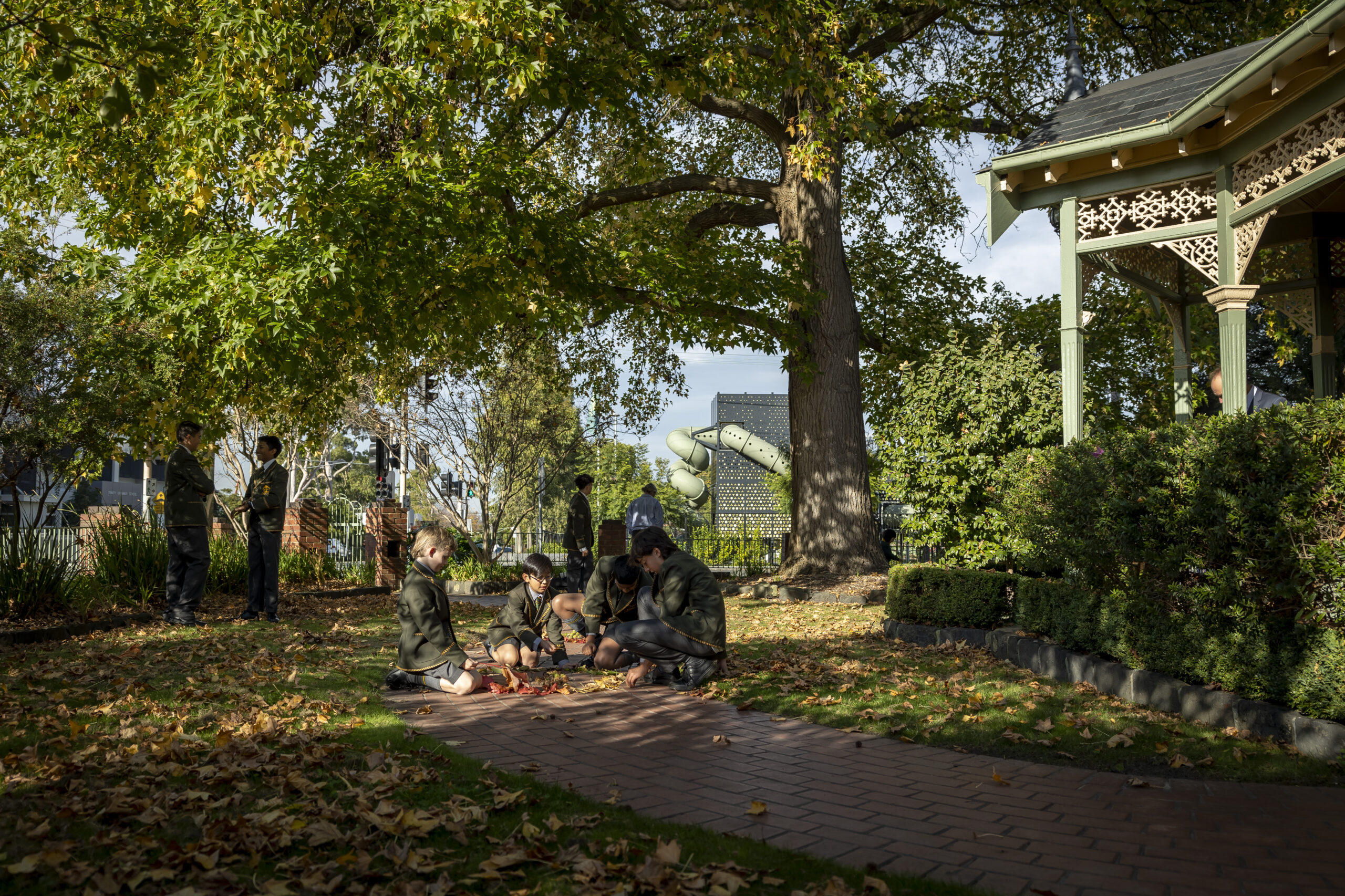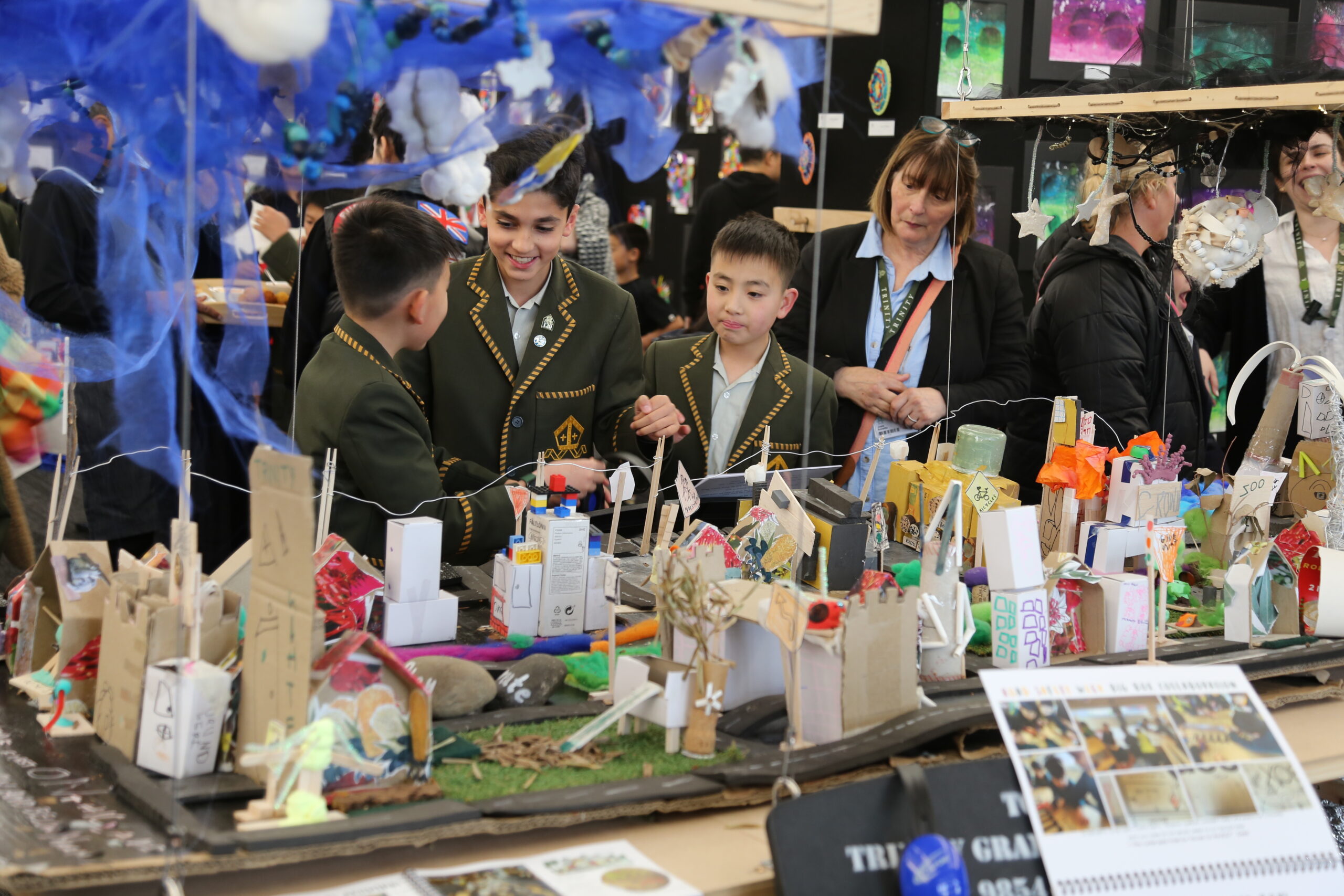
Creating a place to belong
Our school value of “Community” has been a primary driver in the planning and central to the vision’s design. Included in this is the enhancement of the arrival experience for all students, including those from Ruyton Girls’ School, in addition to staff and visitors. Enhancing our Anglican identity and providing relational spaces for celebration, professional learning and wellbeing programs are also important considerations.

Physically connecting the campus for the school community
Through design, we want to ensure that the physical connection throughout the campus is safe, comfortable and can respond to active and passive activities. The need to ensure safe passage across the precincts and roadways is paramount, as is enriching a range of experiences through social, play and informal learning based on age and stage.

Providing facilities that empower students and staff to innovate
Our priority for personalised learning and wellbeing is reflected in the design of spaces that empower students and staff to innovate and develop agency. Responding to the diverse needs of the staff and student community, the Masterplan ensures that our learning and wellbeing spaces are integrated, distributed and appropriate for each age and stage community.

Matching student agency with development
Noting the geography of the campus, the Masterplan prioritises matching mobility and agency with student development and their respective journey across the campus each day. Such an approach addresses density pressures while enabling age and stage-based responses and enhancing a sense of belonging within cohorts.



